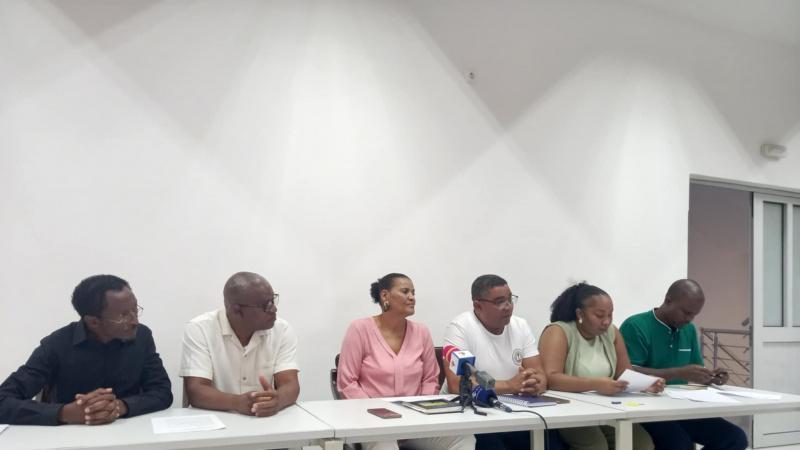Africa-Press – Cape verde. One year after the signing of the agreement between the Government and the seven unions representing healthcare professionals in Cape Verde, the assessment made by the unions points to an “unsatisfactory” performance. The unions denounce that the delay in implementing instruments has promoted precarious contracts, leading to workers not receiving their salaries for more than three months.
At a press conference, the union spokesperson, Maria de Brito, and other union leaders expressed concerns about the “slow” implementation of the agreed measures, highlighting the lack of concrete progress.
According to the union leader, the signing of the agreement in 2023 brought renewed hope to healthcare professionals, who since 2017 had been facing a series of unmet demands and with the approval of the New Public Employment Framework Law, the aim was to change the PCCS’s to PCFR’s.
“The signing of the agreement at that time was a moment of renewed hope, given the dragging on of demands since 2017. This delay, or lag in implementing this instrument, has promoted precariousness in the Public Administration, thus continuing the addendums in precarious contracts, leading workers to not receive their salaries for more than three months, causing deep suffering, especially in the most vulnerable families, due to a lack of resources to fulfill their commitments and support their families,” he recalled.
Maria de Brito stressed that “with the implementation of these instruments, we would overcome these precarious situations”, she stressed, indicating that, if the process does not move forward by the beginning of 2025, the unions may call a national strike.
In turn, the president of the doctors’ union, Eunice Almeida, highlighted that the agreement, which included the implementation of the Career, Function and Remuneration Plans (PCFR), had specific deadlines that were not met.
“The PCFRs for doctors and nurses should have been resolved by July, which is one of the main points of the agreement and, unfortunately, it is still open. By September, we expected that the PCFRs for technicians and institutes would also be concluded, but so far we do not have the diplomas for opinions. This means that the operational support areas and technicians continue without their regulated career plans. This failure has directly impacted the working and salary conditions of professionals, who have been waiting for months for a solution.” Eunice Almeida concluded that the overall balance is negative, considering that the main points of the agreement are still pending. “If it weren’t for the dengue epidemic, we would have already taken other actions,” she warned.
In turn, the representative of another union, Luis Fortes, emphasized the lack of communication as a critical barrier. “There is a profound lack of communication. This creates anxiety and difficulty, especially because professionals attack the unions for not having concrete information,” he said.
Luís Fortes recalled that the suspension of a strike in August was conditioned on the promise of dialogue with the Government, a promise that has not yet been fulfilled. “We believe that a meeting with the Minister alone is not enough. The agreement was signed with the Ministries of Health, the Ministry of Finance and the Ministry of Public Administration, and it is essential that everyone participates in the discussions,” he added.
It is important to remember that the seven unions representing health professionals in Cape Verde held a 72-hour strike from July 31 to August 3, throughout the country. the country, covering all professional classes in the health structures. The strike was motivated by the failure to comply with an agreement reached with the Government to resolve the problems in the sector. The strike was suspended after the Government promised to meet with the unions to discuss the proposals. However, to date, this meeting has not yet taken place.
For More News And Analysis About Cape verde Follow Africa-Press






